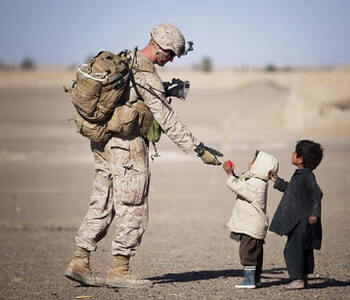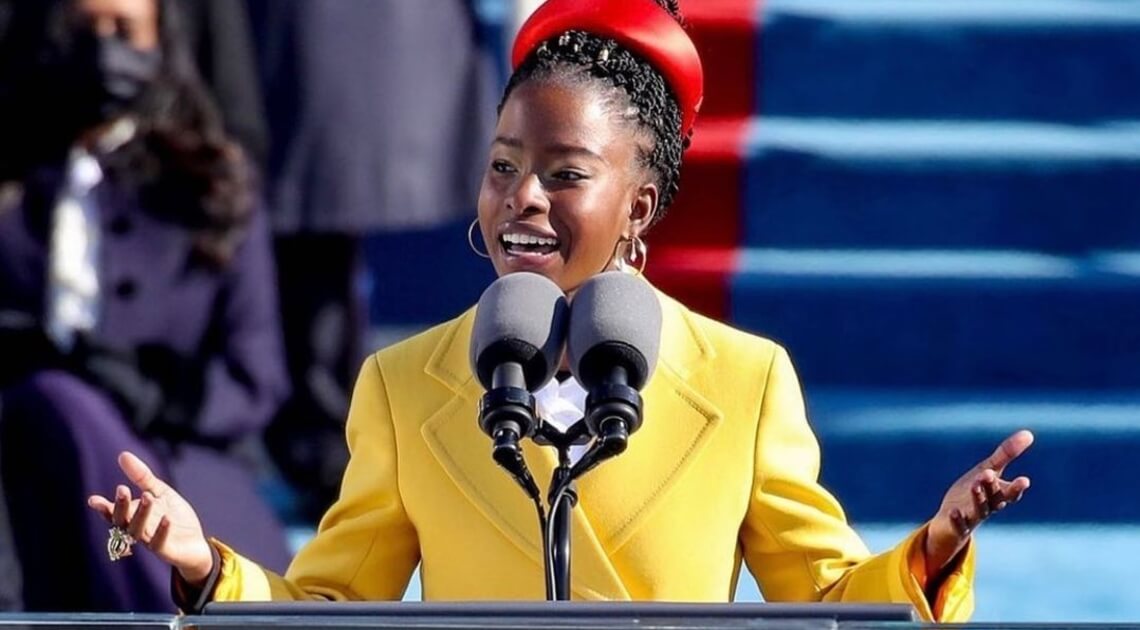 It was 1964 and I was coming of age during the height of the Vietnam War. In August, Congress had passed the Gulf of Tonkin Resolution, giving then President Lyndon Johnson broad authority to step up American military presence. He promptly deployed combat units for the first time and increased troop levels to more than 180,00. It would be more than two years before the U.S. Secretary of Defense, Robert McNamara would express his doubt as to whether or not we could emerge victorious in this controversial conflict. McNamara was one of the architects and encouraged Johnson to use military strikes, ground forces, and a large-scale, strategic bombing campaign in order to maintain our position.
It was 1964 and I was coming of age during the height of the Vietnam War. In August, Congress had passed the Gulf of Tonkin Resolution, giving then President Lyndon Johnson broad authority to step up American military presence. He promptly deployed combat units for the first time and increased troop levels to more than 180,00. It would be more than two years before the U.S. Secretary of Defense, Robert McNamara would express his doubt as to whether or not we could emerge victorious in this controversial conflict. McNamara was one of the architects and encouraged Johnson to use military strikes, ground forces, and a large-scale, strategic bombing campaign in order to maintain our position.
For a child still in grade school, and without a father or other male figure at home I had little idea of what was at stake when it came to war. My mother never discussed this or any other serious topics with me. But every day when I came home from school the television was turned on and we watched what I thought of as “The War Show.”
Walter Cronkite was the anchorman on the CBS Evening News, the first nightly half-hour news program. Dubbed “the most trusted man in America,” it was Cronkite who first told the world that President Kennedy had been shot in 1963. He held us close that day, keeping us updated and then wiping away tears as he announced that Kennedy had died as a result of his gunshot woulds. I can still remember sitting next to my mother in our small living room and watching the black and white television on that day. We had to sit very close to the screen because it was so small, and no one had yet discovered this could be detrimental to one’s eyesight.
Cronkite, an old-school journalist who came of age reporting on World War II, visited Vietnam early on and was determined to share his experiences with the American people back at home. His nightly newscasts helped shape public opinion about Vietnam, which had become known as “the living-room war.” If Walter Cronkite reported it, then it was important for us to hear about it.
The War Show usually began before I arrived home each day and was followed by The Mickey Mouse Club. This show was a full hour of music and skits and all kinds of fun for kids my age. Many days my mind would slip back to thinking about something I had just viewed on the war show, but I quickly shoved those thoughts to a secret place, deep in my mind and returned to what was in front of me at the moment. The time would pass and then we would have dinner while the war raged on in the nightly newscast. We didn’t talk during this time. I suppose my mother was taking in every word and image, but I can’t be sure because she never mentioned it. There wasn’t a reason for this to be a part of our lives. In the evening we would watch a show or two, ones like My Three Sons, Petticoat Junction, and My Favorite Martian.
But while the war in Vietnam raged on, the war at home suddenly, at least in my eyes and from my youthful perspective began to escalate. The protests in the United States became a part of The War Show and I watched in horror as demonstrators and police clashed in hand-to-hand-combat. But it all transpired on television. It was just far enough away, and one dimensional to make it feel like it wasn’t real. Turn the TV off and it all disappears was my thought at the time.
And then there was the boy next door. Robert Gallagher was the eldest son in a family of three boys. He was quiet and liked to tinker with cars and I had a crush on him from the time my mother and I moved in. On Saturdays, after my mother and I returned from the library and grocery shopping I would change clothes and present myself in his driveway. He was always so nice to me and I became his helper. I would hand him just the right wrench or screwdriver for whatever he happened to be working on under the hood. Later I would learn that he was earning money to help out the family with rent and groceries. One Saturday he wasn’t there and one of the brothers told me he’d been drafted.
I did not know what that meant. He explained that Robert had gone into the army and it would be several days before I put two and two together and figured out he would soon be headed to Vietnam. My mother didn’t want to discuss it and there was no one else I felt comfortable enough with to talk to about this situation. Perhaps I would have written him a letter to let him know what was going on back home and on our street. He would be home soon enough, I thought, and I’d catch him up with the details then. But I never had the chance.
The shiny black car drove slowly down our street and pulled into the Gallagher’s driveway. I watched as two men got out and walked towards the front door. They were in uniform and did not smile or say a word when I said hello from my front yard. Then the screaming began and my mother came outside, as did several of the neighbors. It was Robert’s mother doing the screaming and it got louder and louder until my ears hurt. The two officers carried a folded up American flag with them, and it was only when Mrs. Gallagher was standing on the front porch and one of the men placed the flag in her hands and the other said something to her in a low voice no one else could hear that the screaming stopped, the street fell silent, and everything appeared to happen in slow motion. She fell to the ground in one graceful motion and one of the brothers caught her on the way down so she didn’t hit her head.
Where was Mr. Gallagher? I can remember thinking at the time. He was in the bedroom and had refused to come outside. Later I would learn that he opposed the Vietnam War and was angry when Robert was drafted. After that day his drinking got worse and the fights began. He would scream and yell and curse God for taking his oldest boy away from him. I began watching The War Show more intently and pressured my mother to tell me more about what was going on. Seven years later, in May of 1970, Robert’s youngest brother would be among those wounded at Kent State University in Ohio. The War at Home had intensified and divided the country and it looked like this was only the beginning of what was to come.
~ ~ ~ ~ ~
After a second bout with cancer I returned to the classroom midyear in 1995. The previous teacher had waved goodbye at Christmas and neglected to inform the students he was retiring before the new year. But I had no idea this had occurred when I walked in on the first day. When they did not warm up to me during the first few days I was puzzled. One girl finally asked, in front of the class just after the lunch bell rang, “So, how long are you going to stay?”
I was taken aback by this question and it must have shown on my face. “Through the last day of school in June, God willing,” I had answered. Why would they ask me such a thing?
That’s when they told me about what had happened and why they were surprised to have a new teacher on their first day back after the Christmas break. They did not trust me at first and it wasn’t until I pulled the stories out of them that I could understand their pain. Their first teacher had been a racist and a bully. He had verbally assaulted them all semester and it became physical with a few of the boys. He would push them up against the wall and curse at them if they did anything at all. Even turning around to ask another student for a pencil or piece of paper was considered to be a serious infraction.
“Why didn’t you tell your family? Or talk to someone here at school?” I asked, not expecting their answer.
“You don’t understand, Mrs. Green,” said Fernando. He was a big kid with an even bigger heart. Another boy shot him a look that told me the class did not want to discuss this topic with me.
“Then explain it to me so I can understand. I’ll stay in during recess so we can talk about this.”
The bell rang and I left the door open so the class could come and go as they pleased that day. The kids took turns sharing bits and pieces of who they were, what they had experienced, and what they believed. The bottom line was that white teachers and other adults at the school had taken advantage of these students in a variety of ways. A boy named Omar shared that a girl in the class had been treated very badly. She was absent on that day and he told me the whole story.
Suddenly I was once again aware of the War at Home.
The student in question, Laura, had suffered the loss of her older brother soon after the school year had begun that year. He had been shot dead by a gang member in front of their apartment building, while she and her mother and little sisters looked on. Their former teacher, the man who exited stage left without taking a bow, had recommended her to the school’s psychologist. According to Omar, this woman had been unkind to Laura. When I asked for details, Omar could feel the looks he was getting from the other students and he clammed up tight.
After school I lingered in the classroom. I had to think about what the kids had shared with me that day. On my way out to my car Omar slid up beside me. We walked in step out to the parking lot. As I closed the trunk and reached for the car door he whispered “She wanted to kill herself. That’s why she doesn’t come to school any more.”
There were already tears in my eyes when we finally looked at each other. The parking lot was almost empty so we wouldn’t be overheard. “I’ll take care of this, Omar. I promise you.”
The following morning I went to the small office where the psychologist met with students privately. She was sitting inside and motioned for me to come inside and close the door behind me. I asked her about Laura as she arranged boxes of cereal and canned goods on her desk. What followed was a conversation I never imagined I would have with anyone, let alone someone who was a credentialed teacher and licensed therapist, working in a public school in Los Angeles.
More than 95% of our students were classified as Black, Filipino, or Latino/Hispanic. All were poor and the school was in the Title I category and federal program because of this. Everyone received a free breakfast and lunch each day. In other words, we were not serving white, middle-class children at this location. Over the next ten minutes the psychologist proceeded to tell me who she really was. I’ve always believed that people tell us exactly who they are and it’s our job to listen and believe them.
She was an arrogant, racist human being who had no right to be near children. The food on her desk was part of what she and other teachers were collecting for families at a school twenty miles away. A very different school with a very different population of students. When I inquired as to why she wasn’t helping our families, she carried on about government subsidies and liberal politicians and how everyone who was in our country illegally should be sent back to where they came from.
“That describes most of our parents and a small percentage of our students. If we send them all back to Mexico and Guatemala and El Salvador and who knows where else, who will we have to serve and where will we work each day?”
She had no answer to my question and I quickly left her office. About a month later she came in to my classroom while I was teaching and took an English book out of the hands of one of my students. I don’t mean a book for the subject of English. I mean a language arts book written in English. When I asked her what she was doing she informed me that “they” should be reading in Spanish. I know my voice raised as did my blood pressure when I told her to get out of my class and never come back. The door shut behind her, I went over to lock it, and no one said a word until I started the lesson again. I caught a glance from Omar, his thin lips turned upwards in a weak smile. I did not return the look, but on that day I knew I had finally earned the respect of my students and their families. It became a badge I wore with honor and a feeling I still hold in my heart. Laura and her family moved away before I could convince her to return to school and I regret that I could not be there for her.
~ ~ ~
Amanda Gorman is the first National Youth Poet Laureate, and the youngest Inaugural Poet, ever. It was Dr. Jill Biden, then First Lady in waiting who first heard her recite a poem and recommended her to the Inaugural Committee to be considered as the official Inaugural Poet at the Inauguration on January 20th, 2021. The free world fell in love with her that day, while she was still reciting and using hand gestures to tell a story we all needed to hear right then. Here is an excerpt of her poem, The Hill We Climb:
Every breath from my bronze-pounded chest, we will raise this wounded world into a wondrous one.
We will rise from the golden hills of the West.
We will rise from the windswept Northeast where our forefathers first realized revolution.
We will rise from the lake-rimmed cities of the Midwestern states.
We will rise from the sun-baked South.
We will rebuild, reconcile, and recover.
And every known nook of our nation and every corner called our country, our people diverse and beautiful, will emerge battered and beautiful.
When day comes, we step out of the shade of flame and unafraid.
The new dawn balloons as we free it.
For there is always light, if only we’re brave enough to see it.
If only we’re brave enough to be it.
The following day she was interviewed and shared some things about herself. Each time before she speaks Amanda repeats her Mantra out loud. It’s “I am the daughter of black writers. We are descended from freedom fighters, who broke their chains and changed the world. They call me.”
She said that the “Aaron Burr, Sir” song from Hamilton helped with her speech impediment and pronouncing the R’s and other letters she struggled with as a child. She believes that “change becomes our birthright” and that “We’ve seen a force that would shatter our nation rather than share it” during the riots and uprisings leading up to and beyond the election. She also believes that “Hope isn’t something we ask of others; it’s something we demand for ourselves.” And she appreciates the words of President Joseph R. Biden as he spoke to the American people on the night of January 20th, “To heal, we must remember.”
Years ago I committed to always remembering the experiences I have had throughout my lifetime, and to sharing them in my writing and speaking. This is my way of opening the conversations we must all have in order to grow and survive. The War at Home will continue, but we all have the choice to be a part of the solution, rather than an ongoing part of the problems.
I’m Connie Ragen Green, actively participating in this thing we call life as an author, entrepreneur, and marketing strategist. Come along with me, if you will and we will discover the ways we can be of service to those in need and be proactive in alleviating the pain brought about by the uncivilized and ongoing war at home in the United States.


Leave a Reply